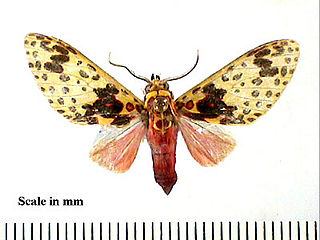| Theroa | |
|---|---|
| Scientific classification | |
| Kingdom: | |
| Phylum: | |
| Class: | |
| Order: | |
| Family: | |
| Subfamily: | |
| Genus: | Theroa Schaus, 1901 |
Theroa is a genus of moths of the family Notodontidae erected by William Schaus in 1901. [1]
A genus is a taxonomic rank used in the biological classification of living and fossil organisms, as well as viruses, in biology. In the hierarchy of biological classification, genus comes above species and below family. In binomial nomenclature, the genus name forms the first part of the binomial species name for each species within the genus.

Moths comprise a group of insects related to butterflies, belonging to the order Lepidoptera. Most lepidopterans are moths, and there are thought to be approximately 160,000 species of moth, many of which have yet to be described. Most species of moth are nocturnal, but there are also crepuscular and diurnal species.

Notodontidae is a family of moths with approximately 3,800 known species. Moths of this family are found in all parts of the world, but they are most concentrated in tropical areas, especially in the New World. The Thaumetopoeidae are sometimes included here as a subfamily.







